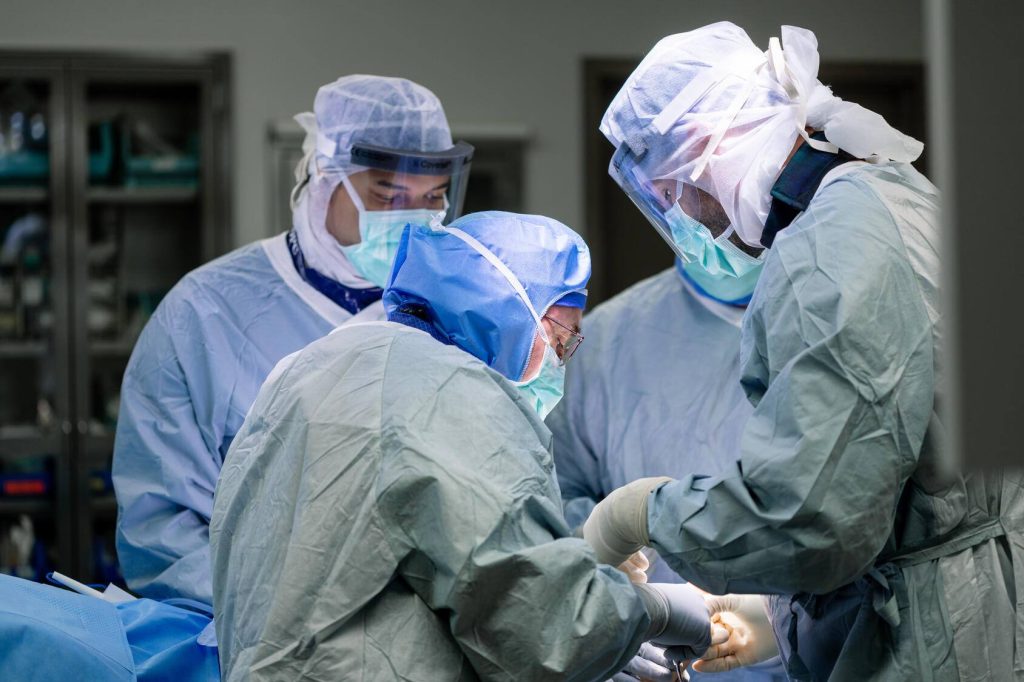
ROCHESTER, Minn. — Total hip and knee replacement surgeries are among the most commonly performed operations in the U.S., with an estimated 1 million of these procedures performed each year. Demand for these surgeries also has been rising globally.
Patients can make lifestyle changes before surgery to improve their chances of successful outcomes, according to Matthew Abdel, M.D., a Mayo Clinic orthopedic surgeon who specializes in hip and knee replacement. However, patients also should be aware that other practices before surgery won't help outcomes or are still inconclusive.
Encouraging education, maintaining a healthy weight, promoting good nutrition and exercising can help mitigate obesity, Dr. Abdel says. This is important since obesity can lead to higher risks of complications after surgery.
Dr. Abdel says that if you are facing joint replacement surgery, you can improve surgical outcomes by making these lifestyle changes:
- Lose weight safely — through diet and exercise — before surgery. The target body mass index is less than 40 kilograms per square meter. However, the closer you can get to 25–30 kilograms per square meter, the better. Even a 20-pound weight loss completed safely before surgery improves outcomes.
- Stop using all nicotine products, including cigarettes, chewing tobacco and cigars, at least six weeks before having surgery. After surgery, do not use nicotine products.
- Stop all narcotic pain medication at least two weeks before surgery.
- If you have diabetes, make sure you have it adequately under control. Adequate control is defined as HgA1C less than 7.5 before surgery. You also want to have excellent glycemic control in the time around surgery.
However, some lifestyle changes do not improve outcomes of hip and knee replacement surgeries, Dr. Abdel says. Those include taking herbal supplements and vitamins, applying wound creams, and using electrical stimulation devices.
It's still unknown whether other changes improve outcomes after surgery. Those practices include physical therapy before hip and knee arthroplasty, postoperative physical therapy for total knee arthroplasties, and hip precautions after total hip arthroplasties.
The number of patients worldwide who are overweight or obese is increasing. Some patients have weight-loss surgery before their joint replacement surgery. However, Dr. Abdel and fellow researchers recently showed that patients who have bariatric surgery before hip or knee replacement surgery continue to have substantial complications after surgery.
The researchers reviewed outcomes of hip and knee replacement surgery in people who had weight-loss surgery first. These patients had more complications than patients who just had joint replacement surgery, regardless of whether they had low or high body mass indices. The complications, which included infection and instability, affected the success of the procedures.
"We think it may have something to do with the bariatric patients' underlying system, such as their gut microbiome and underlying genetic host variation," Dr. Abdel says. "Even though they lost the weight, the soft tissues and underlying collagen status were still of their original nature."
Dr. Abdel and colleagues are continuing their research and studying patients' tissues from the time of surgery. They hope to identify differences in the tissue on molecular, histological and/or cellular levels.
###
About Mayo Clinic
Mayo Clinic is a nonprofit organization committed to innovation in clinical practice, education and research, and providing compassion, expertise and answers to everyone who needs healing. Visit the Mayo Clinic News Network for additional Mayo Clinic news.
Media contact:
- Rhoda Madson, Mayo Clinic Public Affairs, newsbureau@mayo.edu







